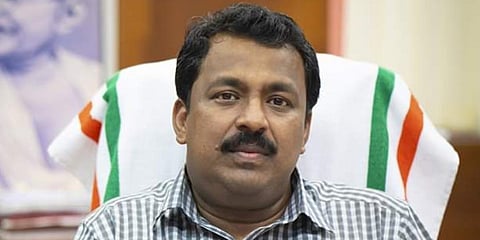

THRISSUR: When the first positive case of coronavirus in India was reported in Thrissur on January 30, the entire attention of the country was focused on the district to know how the deadly infection was going to be managed.
The first meeting led by Health Minister KK Shailaja was called at 11.30 pm, which went on until 2 am, setting in motion a routine of review and deliberation that has resulted in Kerala pretty much flattening the curve.
Though the district currently has no positive cases, the review meeting -- from 5 pm to 6 pm -- is a routine with at least one of the three ministers from the district or MLAs in attendance. District Collector S Shanavas spoke to TNIE on heading the prevention activities and bringing everyone under one umbrella in the fight against coronavirus.
Q: How difficult was the situation, and the experience, while managing to contain the spread?
A: When the first infection was identified, we were actually clueless. But within 24 hours, a system was ready. We formed teams to collect information, trace contacts and for other arrangements. The Health Minister guided us and the health department principal secretary camped here for three days. Sixty-seventy per cent of the COVID-19 containment protocol the nation currently uses was devised and developed in our district.
In the first stage itself, we quarantined 300 people. From following isolation protocol to contact tracing, our teams worked efficiently. Health workers played an important role in ensuring people actually followed home quarantine instructions.
Only one case went out of hand, as a British national participated in the Kuttanellur Pooram and visited places like Athirapilly. As soon as we received information, steps were taken to trace contacts and to shut the resort where they stayed.
Q: How did you go about creating awareness among people to urge them not to panic, but follow guidelines?
A: In a first in the state, probably in the country, the district administration joined hands with youngsters on social media to design and propagate trolls carrying messages on protocol to contain corona infection.
Troll Thrissur acted as a good platform in conveying messages like washing hands and wearing masks. We also made animation videos and pamphlets. We had a team of over a hundred counsellors attending calls to help relieve stress among those under quarantine. The important thing is that, right from the first stage, all these facilities ran successfully.
Q. What was the action plan to manage migrant labourers and to address their concerns amid the lockdown?
A: There are more than 30,000 migrant labourers in Thrissur. We divided the AYUSH doctors into teams visiting each camp. The doctors examined the labourers individually and assured them of medical assistance of their choice.
Even in peak summer, the district has reported just eight chickenpox cases and one fever case among migrant labourers, negating chances of the outbreak of other summer epidemics. We also provided them ‘Aparachitha Choornam', an Aryurvedic medicine that can be used to purify the atmosphere in the rooms where migrant labourers stayed.
Q: What are the challenges during the lockdown?
A: The lockdown was implemented successfully as the general public cooperated. One major concern was the hike in prices of essential goods. We stopped auctions at harbours, thereby putting a slab on fish price. Even in Sakthan Market, which thousands of people visit on a normal day, strict intervention was made to avoid gatherings. Inspections were conducted frequently to avoid price hike of vegetables.
Q: Lockdown norms are set to be relaxed in Thrissur from April 21. What is the situation likely to be?
A: It is definitely a challenge to restrict people from free movement when lockdown norms are relaxed. But we are all set to address any violation of basic norms. Work on major projects like Kuthiran tunnel and power grid cable laying will resume on April 21.